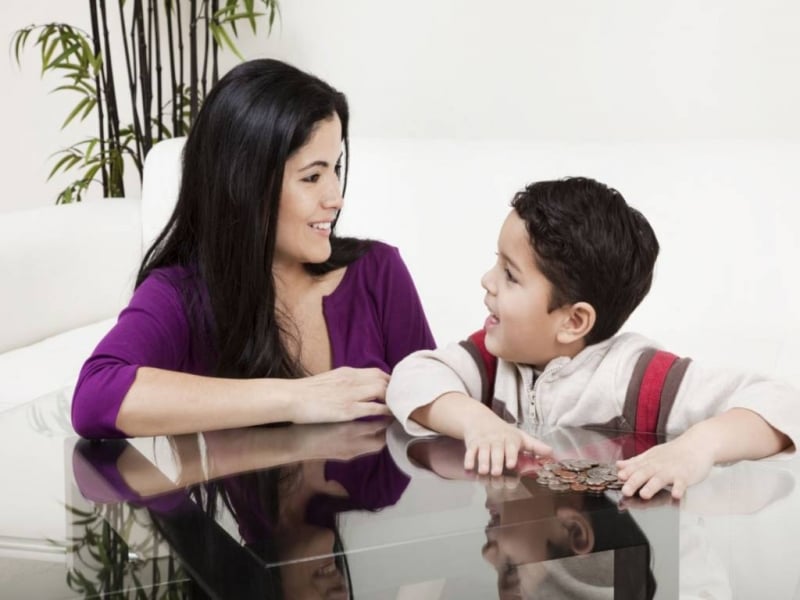After the period of focusing on IQ, nowadays EQ has become a widely concerned index when nurturing children. EQ is an index that reflects emotions towards objects, phenomena, and the ability to control emotions and creativity. The higher the EQ, the more the child can control their emotions and improve their own creativity. Recent beliefs show that EQ plays an important role as it affects interaction, self-expression in groups, society, and family. Therefore, many parents nowadays pay more attention to this index for their children.

Every action and word of parents in front of their children can influence the development of their EQ. A recent story happened between two mothers, what would you do in a similar situation and what is your opinion on the actions of these two mothers?
While eating out with their children at a restaurant, the two women encountered a similar situation, which was finding a hair strand in their children’s food. However, they reacted differently:
First mother, when seeing the hair strand in her child’s food, quickly became angry with the restaurant. She called a staff member in anger and criticized why there was hair in the food, stating that it was unhygienic and threatening to sue if not resolved properly. Normally, many women would react like this because it is indeed a restaurant’s fault to have hair mixed in the food, which makes people feel scared. Moreover, it is within the customer’s rights to be angry and demand compensation. However, the impatient reaction of the mother can make the child feel stressed, difficult, and more inclined to blame others, becoming more familiar with finding faults.

The second mother calmly picked out the hair strand, calmly saying: Perhaps the hair accidentally fell into the food, no one would intentionally do that. The chefs have to cook a lot of food for everyone, so this negligence can be sympathetically overlooked. After that, she threw the hair strand away and continued feeding her child. The second mother is probably more gentle and tolerant, making those around her admire and admire her. She helps her child understand the efforts of others, opening up to kindness and empathy. However, there are also opinions that a hair strand mixed in the food is clearly a food safety issue that the restaurant should take responsibility for, so is it too easy to disregard? Being tolerant but also being aware of responsibilities would be better, wouldn’t it?

If you were the mother in this situation, how would you handle it? And among the two mothers, which one do you agree with more? Maybe there should be a third mother’s approach, explaining the “mistake” when there is a hair strand, then teaching the child to be understanding and tolerant.
Learning Tips for Parents: 12 Japanese Techniques to Use with Your Children
Discover the 12 principles of teaching children in the traditional Japanese way that parents can learn with Dien May XANH! By instilling these principles when your children are young, you can ensure that they grow up to be obedient, smart and polite, the hallmarks of a successful education in Japan.
Mothers’ Need for Awareness of Dual Activity of Breastfeeding and Watching TV
In the contemporary world, in which technology pervades our lives, some mothers tend to soothe their babies through nursing while simultaneously watching television. Although this practice may not appear to affect the infant, studies show that it can in fact have dire repercussions on the baby’s well-being, both in terms of physical health and mental growth. In this article, we will look at the possible reasons for this activity and its potential outcomes.






































